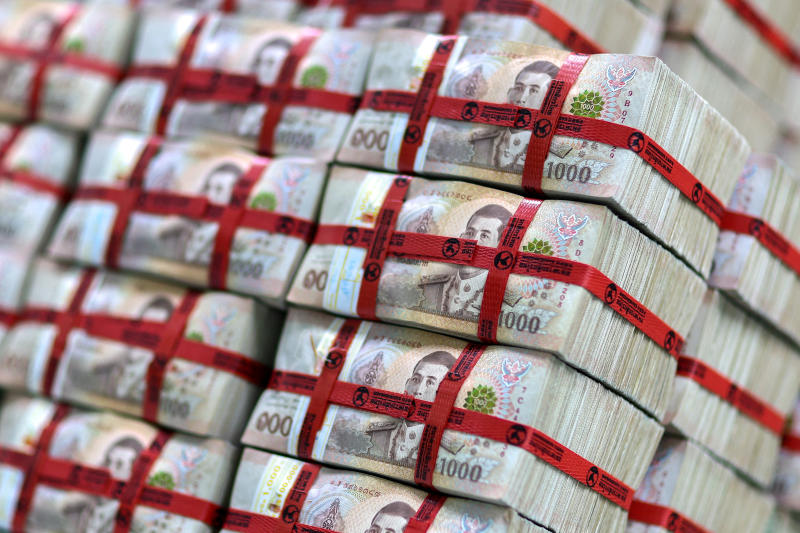
BENGALURU - Thailand's baht slumped to its lowest in more than 10 months on Thursday, hit by persistent worries over the country's fiscal outlook, while other Asian currencies steadied after recent losses against a rallying United States dollar.
The baht fell as much as 0.3%, marking its lowest level since early November. The baht is valued at 36.81 per dollar as of Thursday afternoon, according to xe.com.
The baht, among the worst-performing currencies this year, has already lost more than 2% against the dollar this week and is set to log its fourth straight session in losses.
The yield on Thailand's benchmark 10-year bond marked its highest level since May 2022 at 3.38%.
The Bank of Thailand (BoT) raised its key interest rate for an eighth straight meeting on Wednesday, despite slowing economic growth, below-target inflation and rising global uncertainties.
"To be clear, with tourism recovery underway and likely gathering momentum, and the manufacturing sector's potential to catch up later in 2024, we are constructive on THB (baht) further out," said Vishnu Varathan, Head of Economics & Strategy at Mizuho Bank.
Depreciation in the Thai currency is underpinned by concern over a widening fiscal deficit due to higher spending by the country's new coalition government led by the Pheu Thai Party, which took office last month and is advancing fresh policies to stimulate the economy.
The cabinet has approved new borrowing worth 194 billion baht (US$5.28 billion) for the 2024 fiscal year.
The currency is also under pressure from an extended rally in oil prices, which could mean higher import bills and worse inflation for the net oil importer.
"The growth impact of the government's recently announced policies, including a higher medium-term fiscal deficit and cash handouts, will be weighed against its potential inflationary impact in determining whether further rate hikes are necessary," analysts at OCBC said in a note.
Other Asian currencies 'steady'
Several other currencies in the region managed slight gains, with the Philippine peso, China's yuan and the Indian rupee each up 0.1%.
While the rupee was propped up by likely intervention from the Reserve Bank of India, China's yuan held steady underpinned by a persistently stronger-than-expected official guidance fix.
Skittishness over riskier assets, stoked by hawkish Federal Reserve rhetoric and the prospects of higher-for-longer US interest rates, has lured investors towards the safety of the dollar, which is trading near a 10-month high against a basket of its peers.
Stock markets gain
Markets in Indonesia, Malaysia and South Korea were closed for a public holiday.
Shares in the region were largely trading higher, with those in Singapore, the Philippines and Taiwan each advancing 0.2%.
Stocks in China gained 0.1% but sentiment was cautious after the suspension of trading in China Evergrande's shares on reports that its chairman had been placed under police watch.